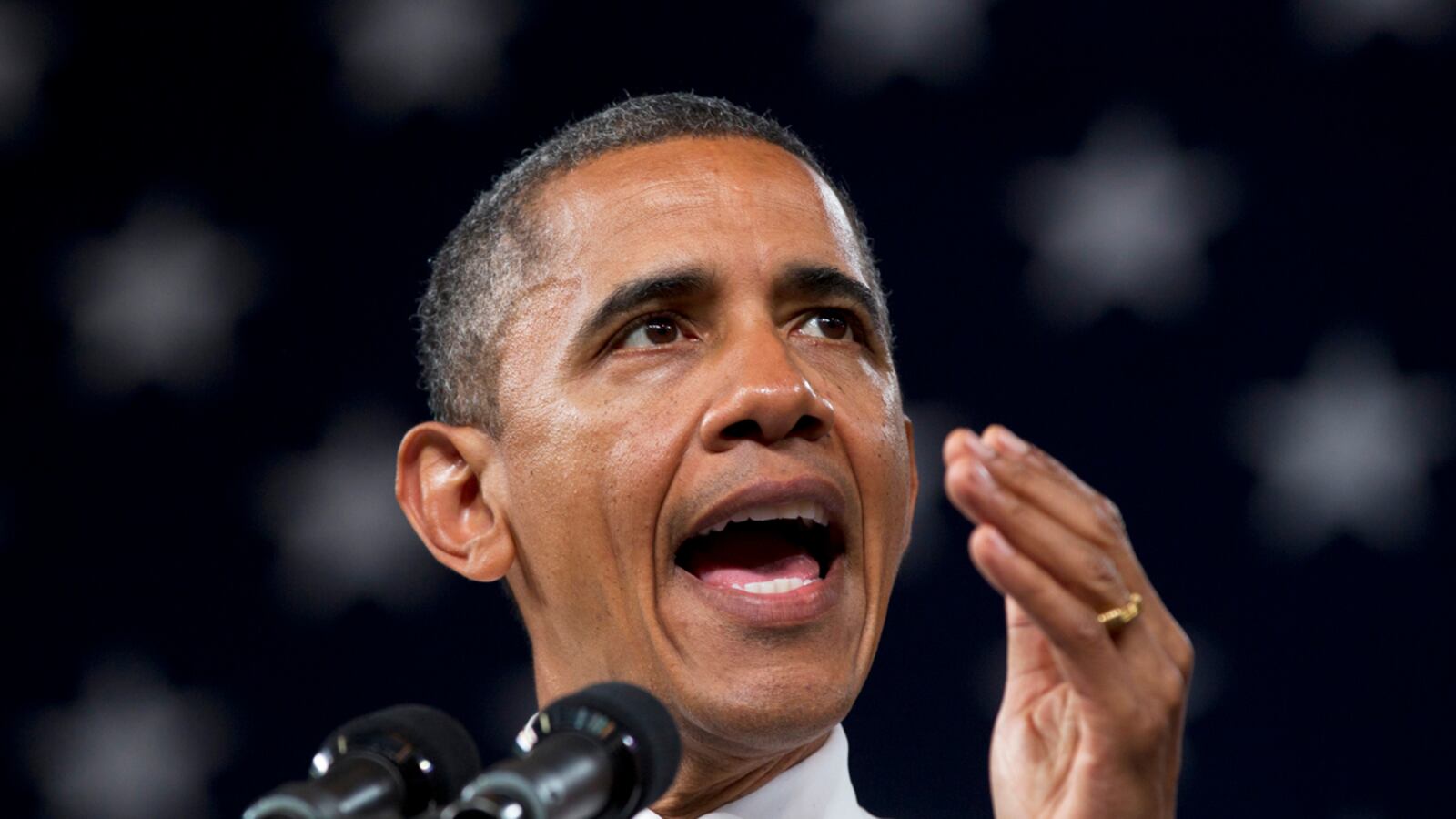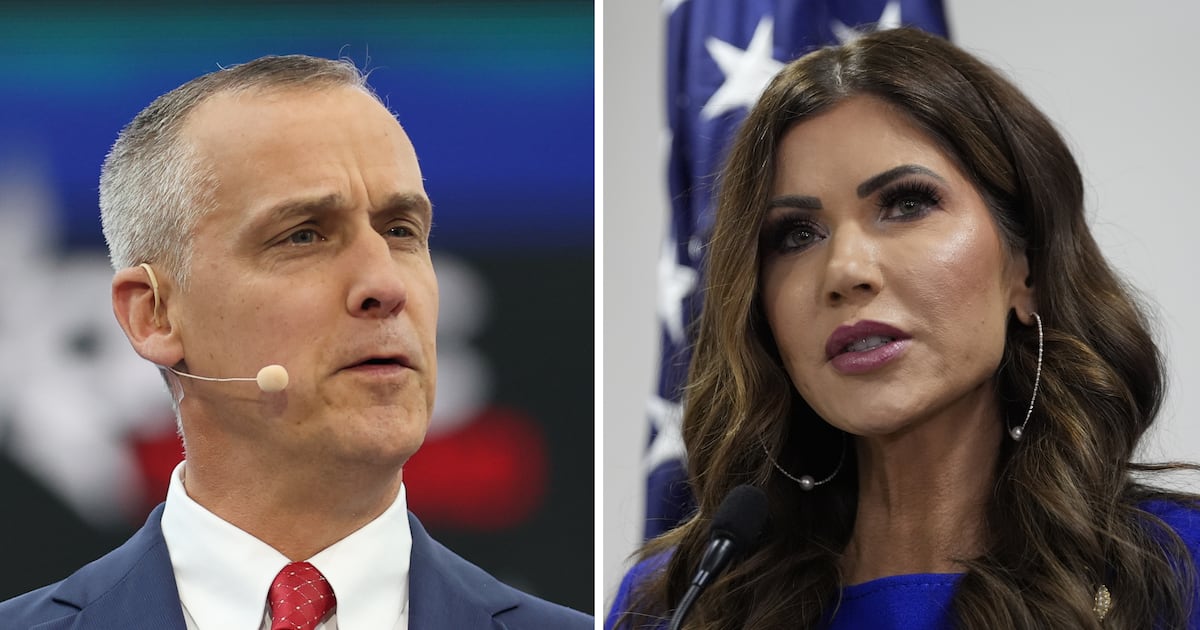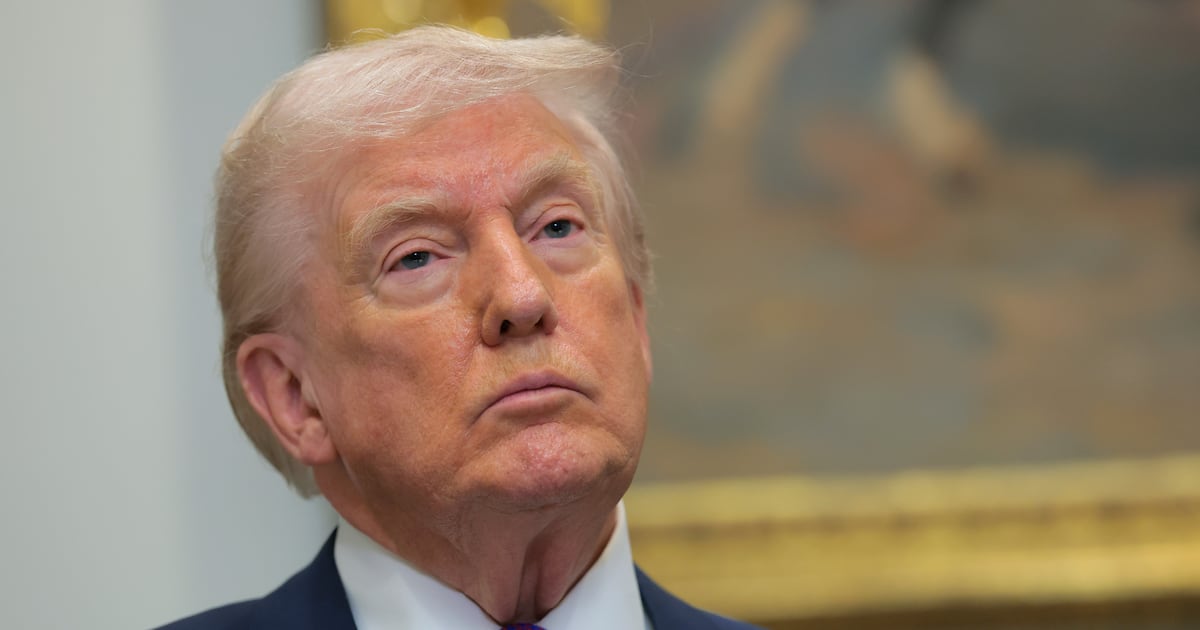If the next five months are anything like the last two, Barack Obama is toast. That’s what many Democrats are saying privately, and it’s not about Wisconsin.

The effort to recall Scott Walker failed, but exit polls show the president holding an edge in the state, which hasn’t voted Republican since 1984. It’s the weak job numbers from last week that has Democrats panicking. There’s a sense that the economy has stalled, and that the Obama campaign is stuck in a time warp with a message that assumes steady if slow progress, when the jobs picture may not get better.
“Our real concern is that they’re just sleepwalking,” says a Democratic strategist, who did not want to be quoted by name criticizing the Obama campaign. His fear, echoed by many, is that Obama’s responses to the dire economic conditions fall far short of the bold leadership needed.
The latest gimmick rolled out by the White House, a To-Do list aimed at Congress that fits on a Post-it note, is emblematic of what’s missing. “A To-Do list is for little things, like picking up the dry cleaning; you don’t put "schedule your son’s MRI" or “buy a new house” on the list,” says this frustrated Democrat.
Hand-wringing is a common malady during presidential campaigns, and Obama has a history of hanging back, listening to his own internal clock, and then acting just when others think all is lost. Campaigns have a rhythm, but the worry among Democrats is that the Obama team is so focused on disparaging Mitt Romney that they haven’t laid out in a clear and compelling way what Obama would do in a second term. “If all Romney has to say is, 'I’ll do better,’ Obama will lose,” says Sam Popkin, a professor of political science at the University of California, San Diego, and author of The Candidate: What it Takes to Win—and Hold—the White House.
People still quote the phrase from the Clinton ’92 war room, “It's the economy, stupid.” Another phrase written on the blackboard by then-strategist James Carville is equally relevant today, “Change vs. more of the same.”
“The man who campaigned in ’08 on hope and change is now, whether he likes it or not, more of the same—and he has to make more of the same look better,” says Popkin. The American Jobs Act that Obama introduced earlier this year is languishing in Congress with no apparent hope of passage. “He has never said what his next three steps are. People have to have confidence he has a plan, and he hasn’t told us.”
In a fast-moving race, an incumbent’s presidential campaign is the battleship, resistant to change, and slow-moving. A successful challenger is a speedboat, nimble and opportunistic. A strategist with ties to the White House says the Obama team is “very wary of making promises he can’t keep like they did the last time.” If Obama wins a second term, there’s a strong likelihood of another unbelievably dysfunctional Congress, and he’ll have to fight rear-guard actions on health care.
Still, Democrats say he should just articulate his vision. Leadership isn’t only about what you accomplish, but how much people understand what you’re trying to get done. “Think back to 1936 and FDR,” says Bill Galston of the Brookings Institution. “The fact they had thwarted him at every turn didn’t matter because people understood where he was coming from.”
Geoff Garin, a pollster with the pro-Obama PAC Priorities USA, acknowledges the problem. “People feel dealt out of the process. His unique talent as a politician is to deal people in—he needs to have an economic message that makes people feel he can make a difference,” Garin says. The message is More To Come—Don’t Panic Yet, it’s only June.
This week’s flap over Bill Clinton’s support for a temporary extension of the Bush tax cuts forced the White House to double down on Obama’s opposition to extending them for those who earn more than $250,000. Obama folded on this very issue after the 2010 election, and depending on the results this November, and the state of the economy, nobody is quite sure where he might stand in the end. “Truman and Clinton had vetoes to prove where they stood,” says Popkin. Obama has vetoed two bills, compared with 37 for Clinton and 250 for Harry Truman, who challenged the “do-nothing” Republican Congress at every turn.
Obama came to the White House thinking he would be the Great Mediator. That dream died with the negotiations over health-care reform, but Obama has been slow to exploit the unpopularity of the House Republicans. Romney was pushed further to the right in the primaries than he wanted, and he has embraced the GOP’s Paul Ryan budget plan, which restructures Medicare and is not popular with voters. “Divided Congress is an opportunity for Obama,” says Popkin. “The Republicans have practically hung themselves. All he has to do is kick the stool out.”
Maybe they’re retooling the ship in Chicago and Obama will tailor his message to changed circumstances. Saying he has the right policies and needs more time worked when the economy was generating more jobs. Complacency is the enemy, not Romney.






